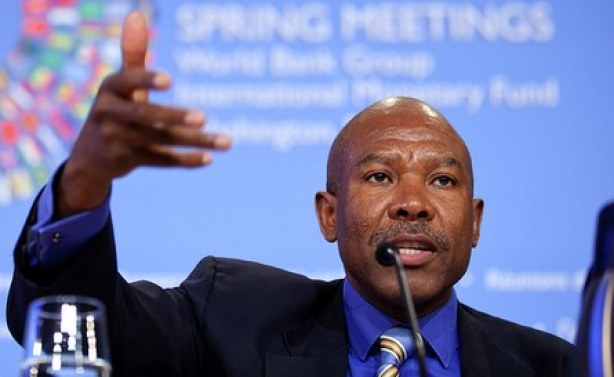The South African Reserve Bank has announced that interest rates will increase to 6.75%.

Reserver Bank Governor Lesetja-Kganyago
JOHANNESBURG – South African Reserve Bank (Sarb) governor Lesetja Kganyago said on Thursday the bank would increase the repo rate by 50 basis points.
This means the repo rate, which is the rate at which the Sarb lends money to banks, will rise to 6.75%.
The prime lending rate, the figure charged by banks to customers, will increase to 10.25%.
Kganyago says a number of factors were taken into consideration particularly around rising inflation.
He also gave a breakdown of the monetary policy committees’ decision.
“Three members supported a 50 basis increase, two members preferred a 25 basis increase while one member preferred no change.”
Kganyago says the MPC remains focused on containing inflation.
“Despite the increase the purchase real repurchase rate remains low given the higher expected increase over the period.”
Many economists had urged the bank to take the bold step and raise interest rates by 50 basis points saying it would help in the long run.
The announcement was made in the capital after a three-day meeting of the Sarb’s Monetary Policy Committee (MPC).
This comes after the bank increased rates by 25 basis points in both July and November 2015.
Earlier today, Statistics South Africa announced that producer price inflation had risen to 4.8% year-on-year for December from 4.3% in November.
RAND DOING BETTER
The markets will now digest today’s news but all eyes will be on the rand.
It’s now around R16.33 to the dollar, R23.30 to the pound and R17.78 to the euro
The all share is up 1.58 percent.
Oil is another area of concerns for motorists as the price climbs it’s now $33.69.
Kganyago talking of a 7 cents a litre increase next week.
Stronger oil prices and the weak exchange rate are not a good combination for fuel prices – and therefore inflation.
Economists hope the rand will regain some ground following today’s announcement.
Earlier there was good news for emerging markets currencies with the US Federal Reserve deciding not to hike its interest rate.
This is good for the rand and hopefully this is the start of a recovery.
INTEREST RATE HIKE WAS ANTICIPATED
Earlier, it was anticipated that there would be interest rate hike and that it would deliver another blow to farmers struggling amid a drought.
Economists predicted an increase of between 25 and 50 basis points.
The water crisis has already increased debt levels among farmers and affected food prices.
AgriSA Senior Economist, Thabo Nkosi, said the Reserve Bank may be forced to raise rates even if it would negatively affect highly indebted farmers.
“It’s not a good thing, especially in this drought period but we do understand a very difficult position the Reserve Bank is in at the moment.”
For farmers yielding low production levels and facing below average income due to the drought, a rates hike will no doubt add weight to their burden.




























